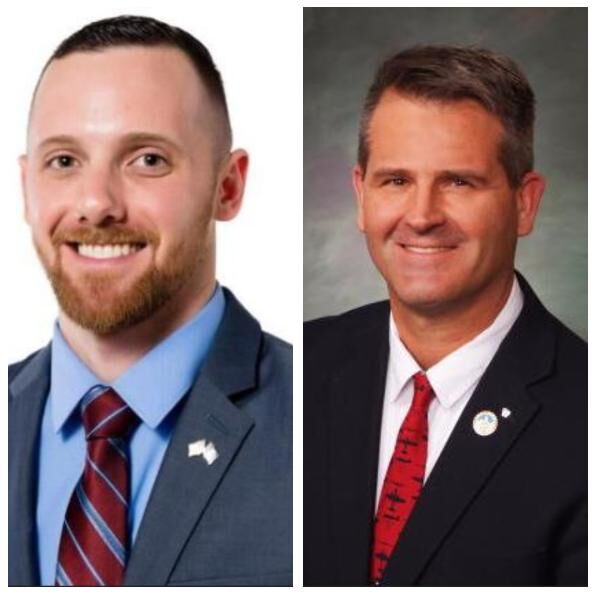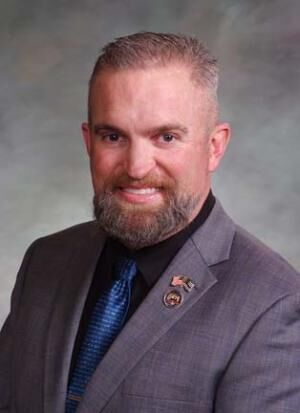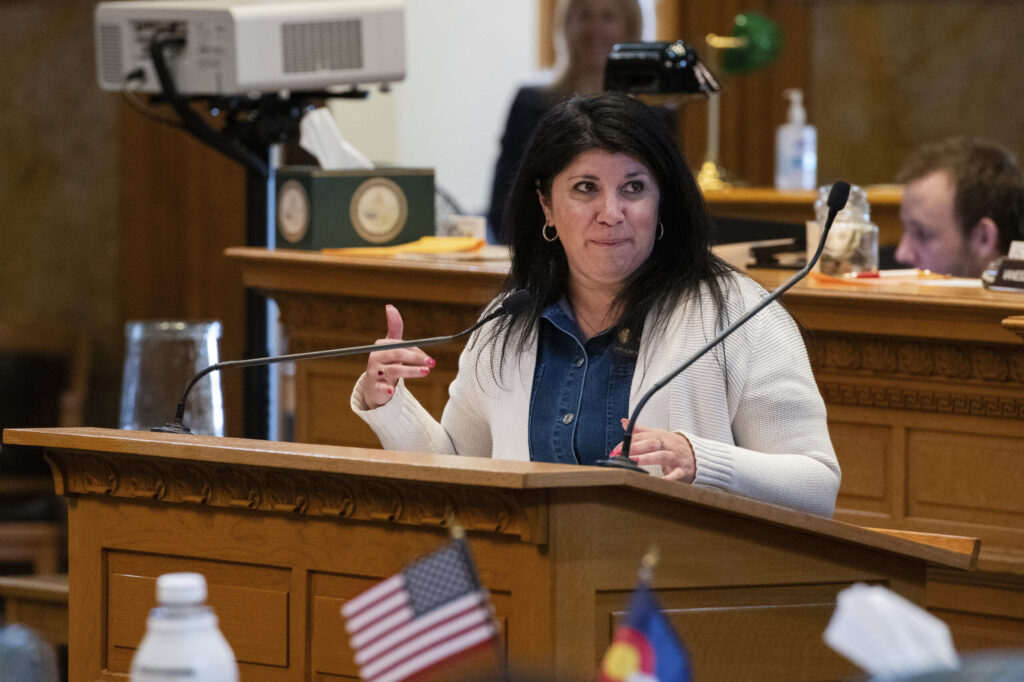Could 2021 be the year that Pinnacol Assurance goes private? A bill to do just that drops next week

In an effort to find money to help energy industry workers transition to new careers, State Rep. Matt Soper, R-Delta, has resurrected an idea that has been attempted four times: privatize the quasi-public workers’ compensation insurance division, Pinnacol Assurance.
Soper plans to roll out a bill next week that he says has the buy-in from Pinnacol, known as the “insurer of last resort” that provides workers’ compensation insurance to anyone in Colorado who needs it.
“This should be one of the best bills of the session,” Soper told Colorado Politics this week. The change would provide $305 million to pay for a Just Transitions plan for energy workers as well as money for controlled maintenance.
Transitioning the company to private will not be easy, but the plan has gotten backing from some of those who have been most opposed to privatization in the past.
This is far from the first time that Pinnacol has been targeted for privatization. Previous attempts date back a decade or more, including efforts pushed by Pinnacol.
The most recent was in 2012, when then-Gov. John Hickenlooper set up a task force to study the move. The majority of the group gave the proposal a thumbs-down.
Hickenlooper would have used the money paid to the state, about $350 million in stock, to fund economic development and education – the state was coming out of the 2008 Great Recession with a $1 billion debt to K-12 – but questions about the impact on rates and opposition from business groups doomed the idea, according to the Denver Business Journal. Pinnacol wasn’t opposed to privatization, then or now. The company had made a similar proposal a year earlier.
Pinnacol has been the state’s insurer of last resort for more than 100 years, beginning in 1915, and currently provides that coverage to 56,000 member companies in Colorado.
The company was a state agency until 2002, when it became a political subdivision of the state, meaning the governor appoints the board, its employees are members of the state’s pension plan, the company remains the insurer of last resort and it offers workers’ compensation insurance only in Colorado. On the private side, Pinnacol is required to operate like a mutual insurance company. However, where it differs is that policyholders don’t own or control the company.
The PERA problem
Soper’s 52-page bill draft has many moving parts. One of the biggest – and where the bill may run into some roadblocks – is removing Pinnacol and its 650 employees from the state’s pension plan. Pinnacol would have to pay the Public Employees’ Retirement Association about $234 million for its share of its employees’ liabilities in PERA’s state division, according to Edie Sonn, Pinnacol’s vice president for communications and public affairs. Pinnacol’s employees represent about 1% of the membership and of its liabilities in the state division.
Soper said Pinnacol is sitting on a $1 billion reserve that keeps its credit rating high. A portion of that reserve, however, would be used to buy out the company’s obligations to PERA, Soper said. “PERA won’t lose; they’ll have less lives to cover and they’ll still have the cash.”
PERA’s board hasn’t taken a position on the bill and won’t until after it is introduced.
Ron Baker, PERA’s executive director, told Colorado Politics that the legislation allowing Pinnacol to disaffiliate from the state division would use the same calculation used for local government. That comes out of Senate Bill 18-200, which allowed Memorial Hospital in Colorado Springs, which is in the local government division, to disaffiliate from PERA, although the hospital eventually decided not to do that.
There’s also the possibility of additional costs over and above the liabilities, which was allowed under SB 200 for local governments but doesn’t exist in current law for the state division.
Baker said, however, that the PERA board might not support a bill that doesn’t match what they do with other employers. Baker pointed out that SB 200 set up a process to deal with disaffiliation with PERA, including costs.
The idea of allowing a PERA employer to disaffiliate is not one that PERA is crazy about, Baker indicated.
“If the General Assembly were to start pulling employers out of PERA, that would be heartburn for public employment, which we believe has a value,” he said.
Insurer of last resort could change
Privatizing Pinnacol, known as divestment or disaffiliation, means it also might no longer be the insurer of last resort. Currently, the company must insure any company in Colorado that applies for workers’ compensation insurance.
The bill requires the Commissioner of Insurance to issue a request for proposal that would allow other companies to bid for the contract, to begin in 2025. However, Sonn said the company would definitely bid for that contract and wants to retain the title.
“We do a pretty good job,” she said. “We believe having a single carrier of last resort is in the best interest, not only for the business but for their employees. When you have one insurer who specializes, it helps ensure when someone gets hurt on the job, they get the care they need.”
She explained that most other states handle workers’ comp through an assigned risk pool, similar to a rotation where a carrier gets to ensure those high-risk claims but the carrier changes from year to year or perhaps every couple of years.
“You don’t end up with that same kind of specialized mindset or service,” she said.
The conversion would turn Pinnacol into a mutual insurance company, which means it would be owned and managed by its policyholders.
Pinnacol, which backs Soper’s bill, sees divestment as a win-win. The state gets badly-needed funds for controlled maintenance and for the Office of Just Transitions, created under 2019 legislation and intended to help workers in the oil and gas and mining industries transition to new careers.
According to a Pinnacol fact sheet tied to a Feb. 8 draft, the benefit to Pinnacol is that it would be able to better meet “evolving workers’ compensation needs of Colorado businesses and their employees, including the ability to cover dispersed workforces and bundle other business insurance products.”
Soper says policyholders will continue to enjoy the low rates – which Pinnacol says have decreased for six years in a row – that they’ve always had.
Just Transition
Soper’s main interest in divestment is in what the cash would do for Western Slope energy workers. He was a “no” vote on House Bill 19-1314, which created the Office of Just Transitions.
But Soper said he’s watching local communities, such as Delta or Paonia that are having coal mine closures, or Craig and Hayden with coal mine and power plant closures, or also Pueblo with power plant closures. The closures are “all being sped up. There’s a lot of need right now,” he said.
“These are two very important functions of government, helping individuals in communities through no fault of their own, seeing good paying jobs close. It’s the state’s obligation to help. I don’t support closing coal mines or power plants, but I do support individuals who wake up one day and don’t have a job. We likewise have a duty to maintain the things we own as state government.”
He pointed to a school in Colbran, which he said has asked the state for a BEST grant to build a new wing. The lack of money for maintenance has left an older part of the building past the point where it can be repaired, so now they need a new wing, he explained.
“My constituents know I fought tooth and nail against closing coal mines and coal-fired power plants,” he said. “But they also know I care about the people, and I see Just Transitions as being about people and communities that have been adversely affected. That’s a different conversation than whether to keep coal mines open and power plants burning.”
Business support
Soper has overcome one of the bigger roadblocks from the past to divestment: opposition from the business community. Among those in his corner who weren’t in 2012, for example: the Colorado chapter of the National Federation of Independent Businesses.
Tony Gagliardi, NFIB’s Colorado state director, pointed out that 80% of his members get their workers’ compensation insurance through Pinnacol.
“We were out in front [of] the last attempt to raid Pinnacol by Gov. Hickenlooper” and Pinnacol’s former executive director, he said, adding that he believed the last proposal was a raid on property that rightfully belonged to policyholders and not the state.
This time, Pinnacol came to NFIB to explain the new approach, he said. “We were impressed with the way they approached, the information they provided, and that they were doing a sincere effort to reach out to all stakeholders.”
He also attributes some of the cooperative spirit to Pinnacol’s transparency efforts, which he says comes from its current executive director, Phil Kalin. The change in leadership “has been an example in good leadership and trust,” Gagliardi said.
“They’re doing everything they can to cover all the bases, answer the questions that were never answered in the past,” such as providing an actual dollar amount for the move, he said.
Pinnacol also relied on a third-party valuation that Gagliardi liked.
“They’re doing everything they can to protect policyholders with a clear understanding for everyone. It’s the policyholders who will be in control,” he said. Pinnacol also has gone out of its way to protect its employees who would come out of PERA.
“I have gotten good, impartial assessments, and when I’ve asked a question, I’ve been provided with assurances for the answer,” Gagliardi said. “I’m working to educate my members. It would mean a change in ownership, but not a change to Colorado’s workers’ comp program.”
Gagliardi said they would watch the process for awarding the contract on “insurer of last resort” very carefully, as well as how the Commissioner of Insurance, currently Michael Conway, would handle that proposal.
Seeking Polis opinion
So where does Gov. Jared Polis sit on this? Soper believes the governor is on board, noting that Polis’ 2021-22 budget proposal did not include a request for either controlled maintenance or Just Transition funds, hoping to rely on the money coming from Pinnacol.
But privatization could be a problem for Polis with the unions.
Kjersten Forseth of Red Rocks Strategies is the spokeswoman for AFL-CIO, which represents construction workers and other workers in high-risk occupations. They’re firmly opposed to the bill, Forseth told Colorado Politics.
“This would privatize Pinnacol for no reason,” Forseth said Wednesday. The company is doing well and has among the lowest rates in the nation, she said, adding that if they’re going to do something different, that should include better benefits for workers.
AFL-CIO also has issues with the bill’s language on the RFP for an insurer of last resort. She said the bill’s criteria looks like it would fit only Pinnacol.
They’re also concerned about the possibility that no one would bid for the contract. “It’s a high-risk pool, and the state could be left hanging,” and then have to create a whole new system for handling those high-risk claims. That could drive higher rates for those high-risk jobs, Forseth said, and it could also cause employers to not comply with the laws requiring them to have workers’ comp insurance.
“We don’t want that either,” Forseth said. She pointed to previous legislation, backed by AFL-CIO, to create an uninsured fund for people who work for companies that don’t comply with the law.
Late Wednesday afternoon, Polis spokesman Conor Cahill told Colorado Politics that “Governor Polis believes discussions about reforming Pinnacol in ways that will better serve employees and businesses in Colorado are worth having, but the Governor has not made any commitments on any specific legislation.”
Most recent draft of bill to privatize Pinnacol Assurance.













